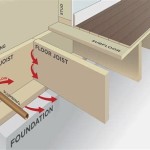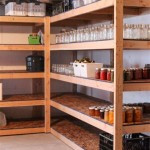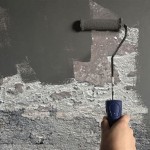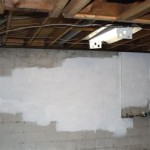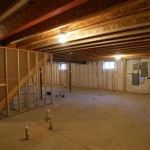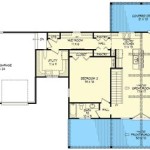Essential Aspects to Consider for Optimal Basement Ceiling Soundproofing
Soundproofing your basement ceiling is crucial for creating a peaceful and comfortable living space. Whether you're a music enthusiast, have a home theater, or simply want to eliminate noise from other rooms in your home, choosing the right insulation is essential. Here are some key aspects to consider when selecting the best insulation for soundproofing your basement ceiling: ### Insulation Type and Density The type and density of insulation play a significant role in its soundproofing capabilities. Fiberglass, cellulose, and spray foam are common insulation materials used for soundproofing. Fiberglass is a cost-effective option with decent sound absorption, while cellulose is made from recycled materials and offers excellent noise reduction. Spray foam, on the other hand, creates an airtight seal that effectively blocks sound transmission. The higher the density of the insulation, the better its soundproofing performance. ### Sound Absorption Coefficient (SAC) The SAC measures the material's ability to absorb sound waves. A higher SAC value indicates better sound absorption. Look for insulation with an SAC of 0.7 or higher for effective soundproofing. ### Noise Reduction Coefficient (NRC) The NRC is similar to SAC but provides a broader measure of sound absorption across a wider frequency range. An NRC of 0.5 or higher is considered good for soundproofing. ### Installation Method Proper installation is crucial for maximizing the soundproofing effectiveness of insulation. Batts, rolls, and loose-fill insulation are commonly used. Batts and rolls are easy to install between joists, while loose-fill insulation can be poured into cavities or blown in using a machine. Always follow the manufacturer's instructions for proper installation. ### Additional Soundproofing Considerations In addition to insulation, you may consider using other soundproofing techniques to enhance the results. These include: -Acoustic panels:
Wall-mounted or ceiling-mounted acoustic panels can absorb additional sound. -Soundproofing sealant:
Apply sealant around gaps and cracks in walls and ceilings to prevent sound leakage. -Heavy curtains:
Thick, heavy curtains can help block sound from outside sources. -Carpet:
Carpet on the basement floor can absorb sound from foot traffic and other activities. ### Cost Factors The cost of soundproofing insulation can vary depending on the type, density, and installation method. Fiberglass and cellulose are typically more affordable than spray foam. Labor costs for installation should also be considered. ### Conclusion Choosing the best insulation for soundproofing your basement ceiling requires careful consideration of the insulation type, density, SAC, NRC, installation method, and additional soundproofing measures. By taking these factors into account, you can effectively reduce noise transmission and create a more peaceful and comfortable living space in your basement.
Best Insulation For Soundproofing Your Ceiling Renoviso

Soundproofing Ceilings How To Soundproof A Ceiling

Nova Basement Remodeling Soundproofing In

Soundproofing A Home Workshop Technical Details Two Teaching Videos

What To Know About Soundproofing A Basement Ceiling

How To Soundproof A Basement Ceiling

Soundproofing Basement Insulation Services In Denver Co

Soundproofing A Ceiling Sound Proofing Home Studio Music Basement

Best Basement Ceiling Insulation For Sound Soundproof Guide

How To Soundproof A Basement Cow
Related Posts
